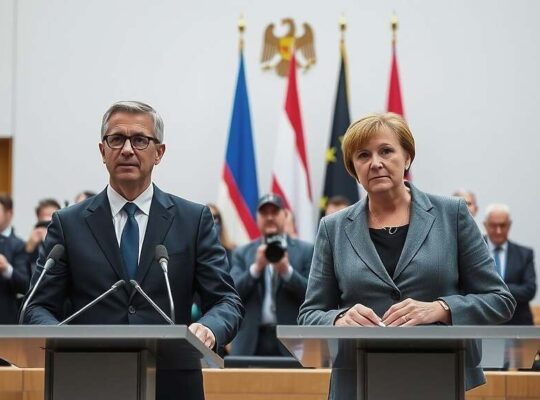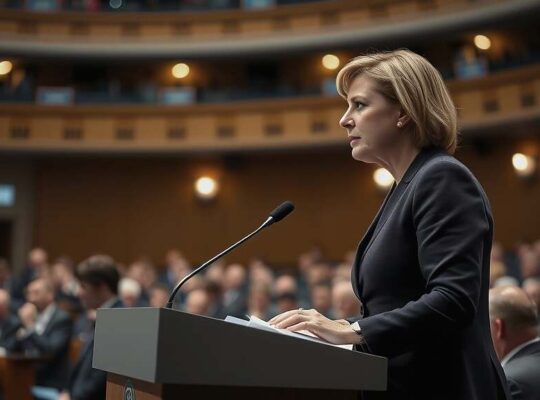widespread disillusionment with mainstream parties is fueling the rise of the far-right Alternative for Germany (AfD).. The survey, based on responses from 1,300 eligible voters, points to a profound crisis of trust in established political institutions.
The poll’s most striking finding is that 60% of voters and 39% of AfD supporters specifically, cite “disappointment with the policies of other parties” as the primary driver of the AfD’s growing appeal. This sentiment underscores a palpable sense of abandonment and unmet expectations among a significant portion of the electorate. While the AfD’s own political platform and the way other parties engage with them are also considered factors, they demonstrably play a secondary role compared to the pervasive sense of disappointment.
The erosion of confidence in traditional political forces is further reflected in the survey’s data on perceived problem-solving capabilities. Only 27% of respondents now believe the center-right Union bloc is capable of addressing the nation’s critical challenges, a significant decrease from February 2025. The AfD, meanwhile, garners the trust of 19%, a notable increase. SPD, the Greens and the Left have similarly struggled to maintain trust, with their respective support for leadership hovering at alarmingly low levels. A staggering 27% of respondents express a conviction that “no” party is currently capable of effectively governing.
Perhaps most ironically, the poll suggests that efforts to marginalize the AfD may be backfiring. A majority (52%) believe labeling the party as “undemocratic” actually strengthens its position, a view overwhelmingly shared by AfD supporters. Similarly, a significant 60% feel that refusing to pass legislation without AfD support strengthens the party, reinforcing a perception of gridlock caused by the obstructionist tactics perceived from other established institutions. Even attempts to diminish the party’s influence through symbolic gestures, such as excluding them from the Bundestag presidency, are viewed as potentially counterproductive by 43% of respondents.
The level of public division regarding potential collaboration with the AfD highlights the complexity of the situation. While a considerable 40% categorically reject any cooperation, a concerning 25% advocate for the pursuit of collaboration, primarily amongst supporters of the Union party where a combined 56% of voters express support for ‘case-by-case’ engagement or outright endorsement. This internal division within the Union highlights a struggle for direction amidst the turbulent political landscape.
Finally, perceptions of media coverage contribute to the narrative. 42% of respondents believe there is excessive coverage of the AfD, a sentiment overwhelmingly shared by AfD supporters who believe they are unfairly underrepresented. This perception of bias, whether genuine or manufactured, further fuels the narrative of the party as an unjustly persecuted underdog, potentially attracting further support.
The survey’s findings present a sobering picture for German politics, suggesting that a lack of demonstrable leadership and inability to address voter concerns is inadvertently bolstering the far-right. The potential consequences of this trend are profound, requiring a fundamental reassessment of political strategies and a renewed focus on rebuilding public trust.












